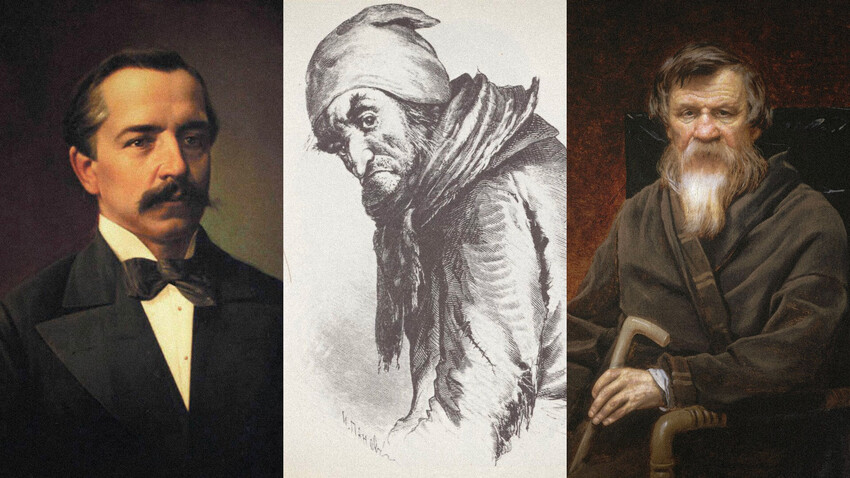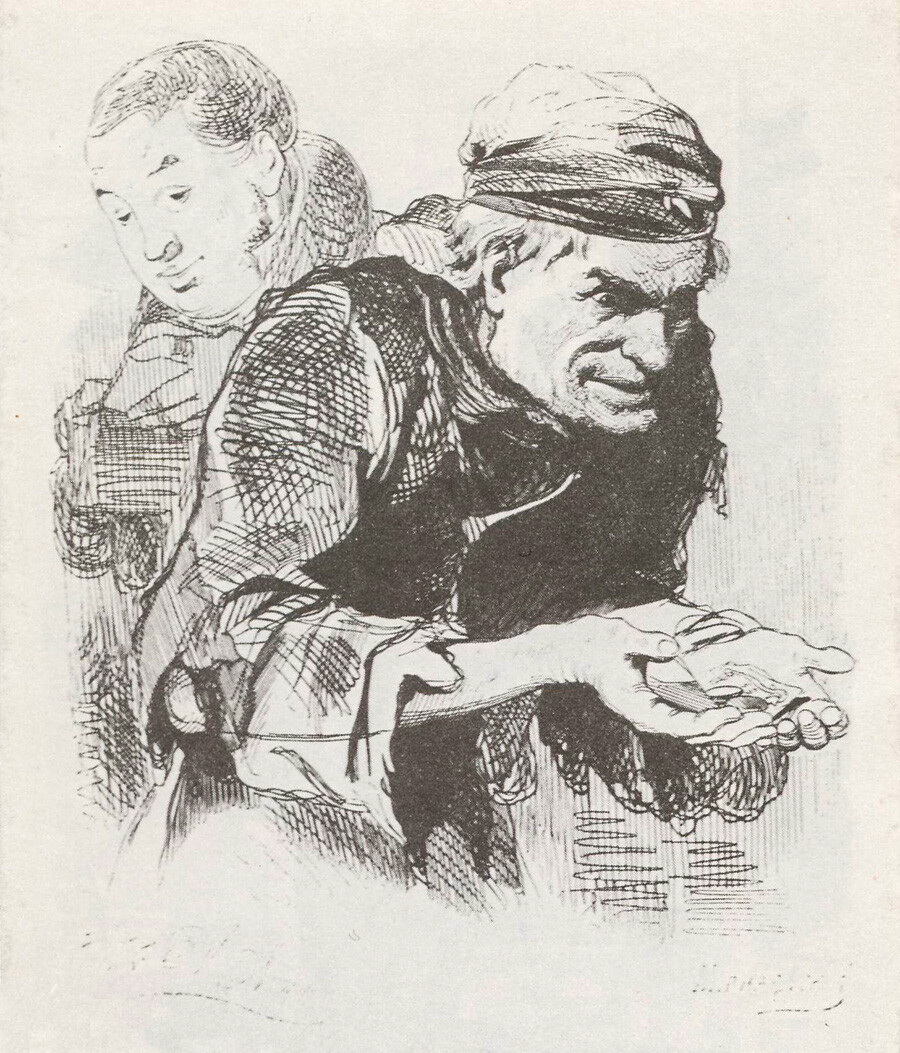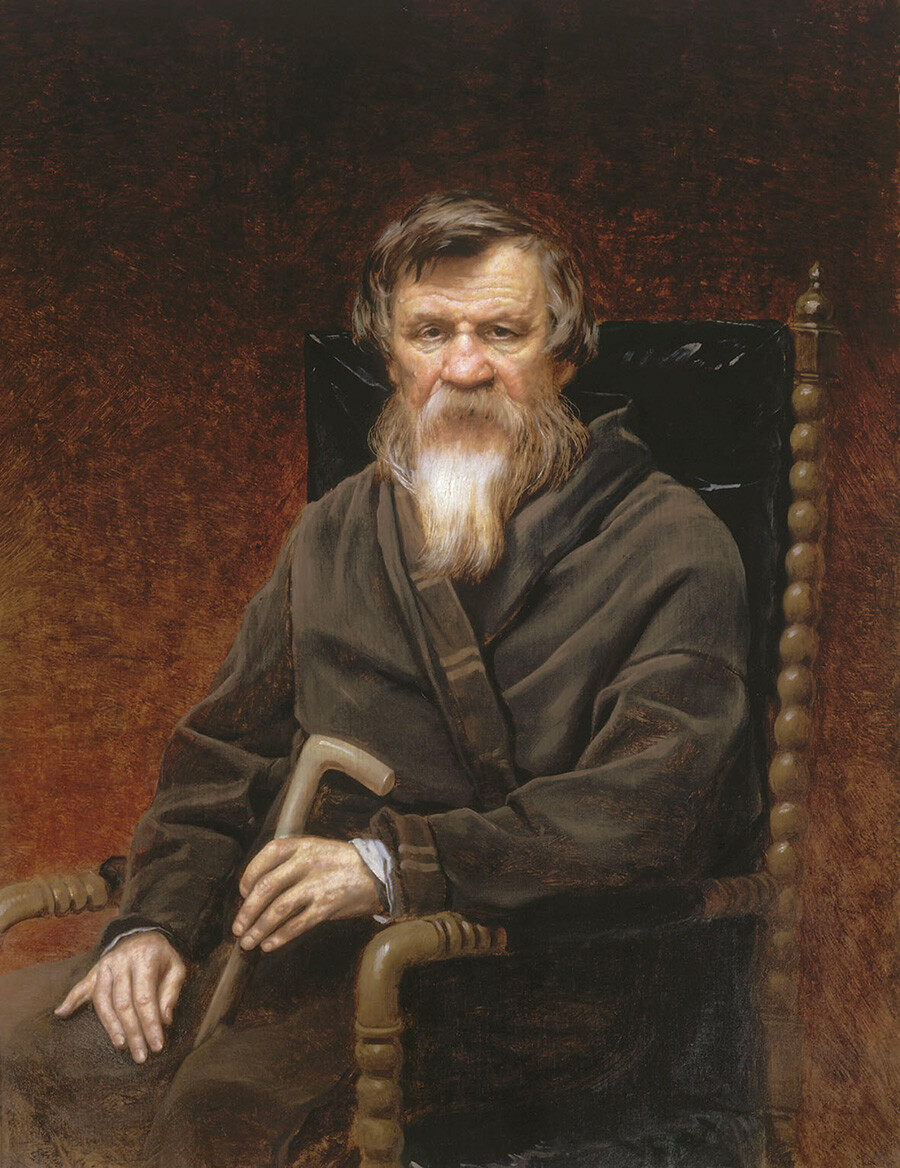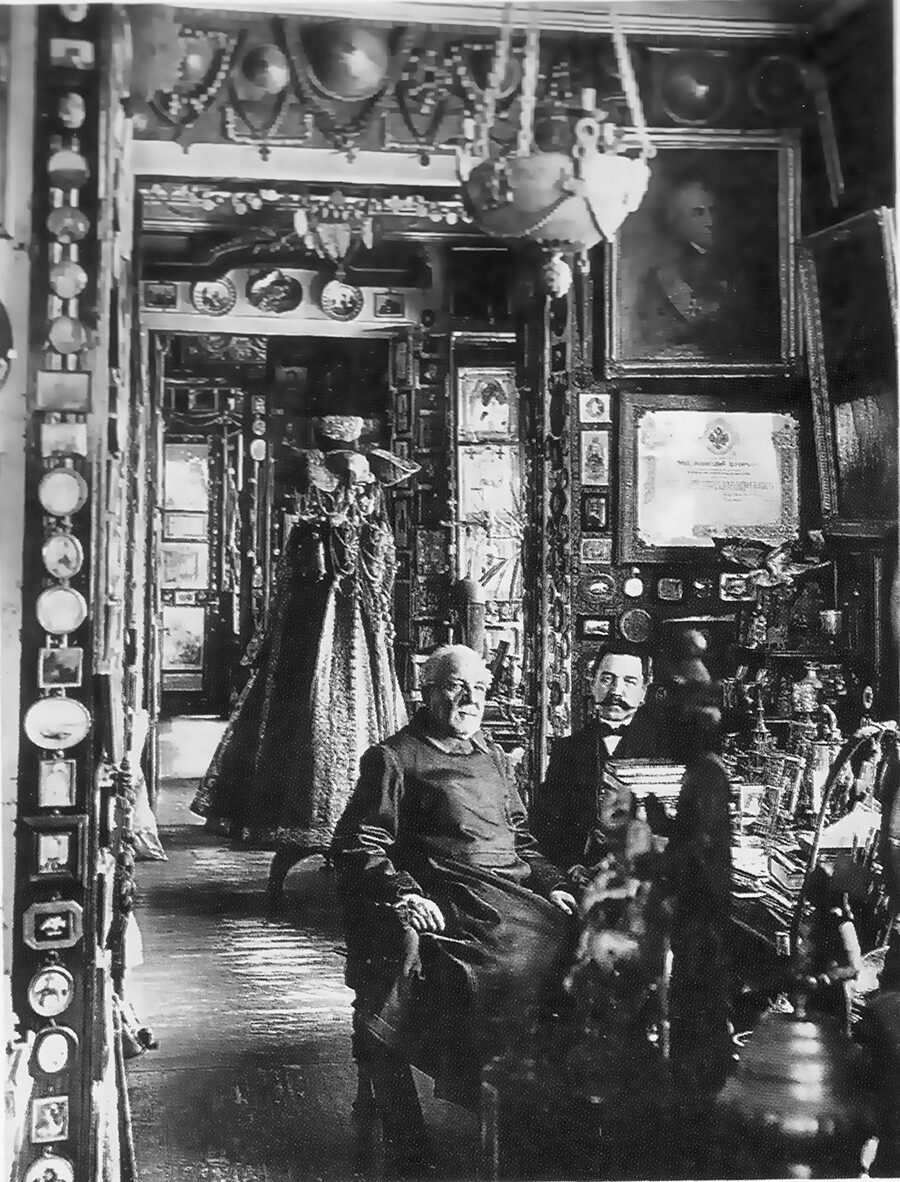

It is believed that Nikolai Vasilyevich Gogol “copied” his image from famous historian Mikhail Pogodin and even gave the possessions of the stingy hero resemblance to his house and garden.

There are other versions of who could be the prototype of the hero of ‘Dead Souls’. According to one of them, Pushkin told Gogol about the merchant Plyushkin: allegedly, while driving through Valday, he saw a sign with his name and shared this observation. The surname suited the character perfectly and so it stuck with him.
It would seem like a curiosity, nothing more. But, the fact is that, a few years after the release of the first volume of ‘Dead Souls’, the owner of the Valdai store had a son, who became a real ‘Plyushkin’, but in a positive way.

Fyodor Mikhailovich Plyushkin amassed one of the largest private collections in Russia. He was interested in literally everything: manuscripts, icons, medals, paintings, Suvorov’ personal belongings, stamps. He was not bothered by the fact that unimportant handicrafts stood next to really valuable items - in forty years, the collection grew to a million items!
Anyone could see the collection - Plyushkin opened a museum in his Pskov house. He planned to sell it to the Alexander III Imperial Russian Museum, seeking to get 200,000 rubles for it. But this never happened. Already after the death of Fyodor Plyushkin, his collection was bought by Nicholas II for 100,000rubles. Today, his treasures are kept in the Hermitage, the Russian and Ethnographic Museums, while some of the items are still in Pskov.
Dear readers,
Our website and social media accounts are under threat of being restricted or banned, due to the current circumstances. So, to keep up with our latest content, simply do the following:
If using any of Russia Beyond's content, partly or in full, always provide an active hyperlink to the original material.
Subscribe
to our newsletter!
Get the week's best stories straight to your inbox